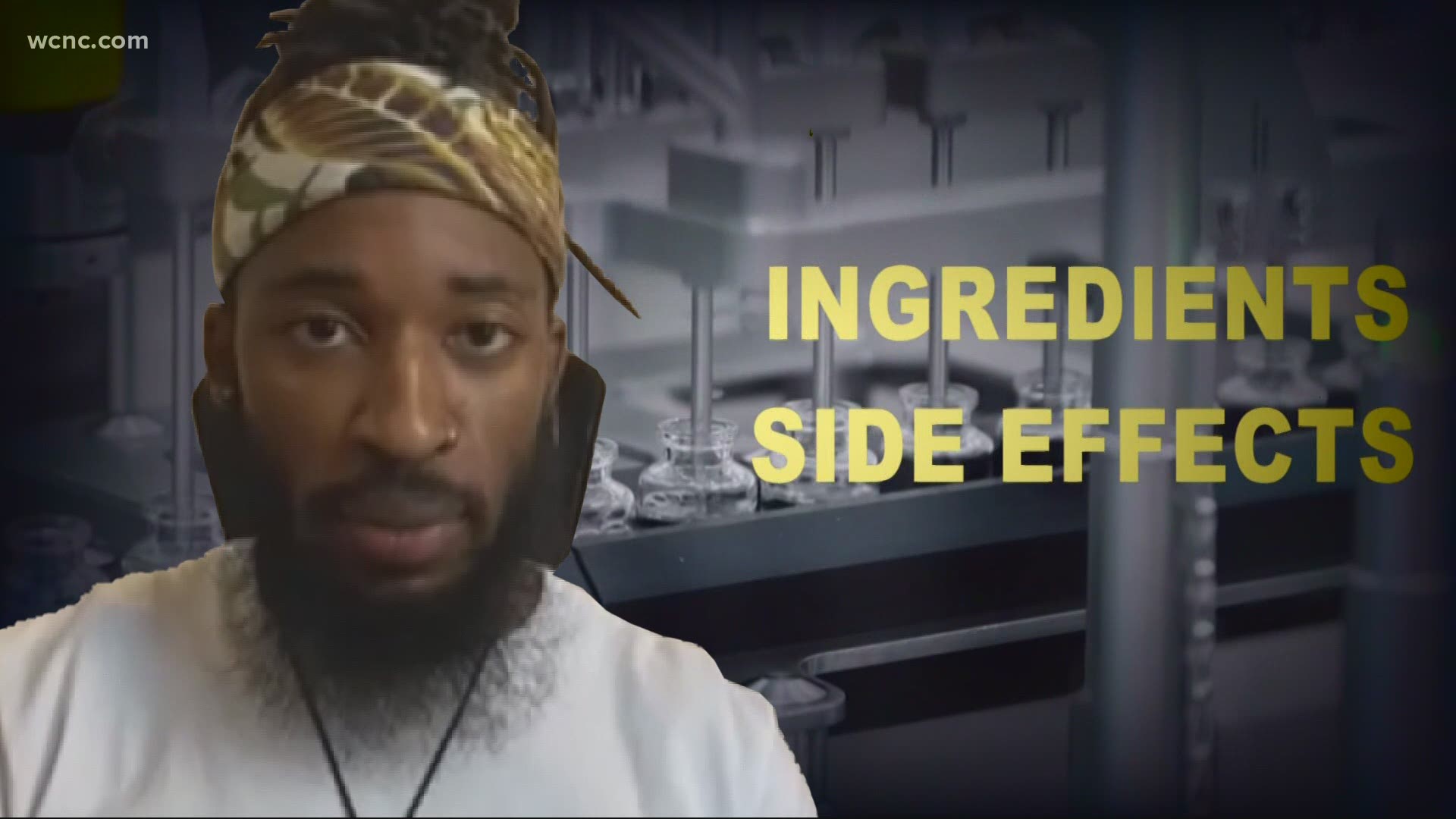CHARLOTTE, N.C. — In Black communities, especially those that have been hit hardest by the coronavirus, there's a high level of hesitancy when it comes to getting the COVID-19 vaccine.
The reluctance to be treated stems from the country's history of medical mistreatment in communities of color, including the federal government's reputation of testing African Americans without consent. Examples include the Tuskegee Experiment and Henrietta Lacks.
NOTE: This is second of a two-part series on concerns about the COVID-19 vaccine in Black communities. Click here to read the first installment.
Pierre White keeps those stories in the back of his mind when thinking about the COVID-19 vaccines.
"If you look at the past, it's like, why are we continuing to fall guinea pig for the system?" White said.
White shares the same concerns held by many people of color. He says he's researched the vaccine but remains doubtful about the ingredients, the side effects and just how fast the vaccines received approval from the federal government.
WCNC Charlotte’s Billie Jean Shaw took those concerns to Dr. Jane Kelly, the assistant epidemiologist for the state of South Carolina.
“There is no live virus, there are no human parts in this vaccine,” said Kelly, explaining COVID-19 vaccines are not like other vaccines. “There are four basic components. One is Messenger RNA.”
According to Kelly, Messenger RNA "is just the gene for one protein that sticks out of the surface of that virus." She said the vaccine works by blocking that one protein. The idea being if you keep that protein from attaching to the cell, that will block the virus from getting inside. At that point, Kelly says a person will be immune from the disease.
Kelly said the other ingredients in the vaccine are sugar, salt (including table salt) and oil. Those three ingredients coat the Messenger RNA, helping it to stick together. Kelly says the oil is what usually causes the side effect of tenderness in a person's arm at the injection site.
In extreme cases, she says 30 out of the 10 million people vaccinated in the US, experienced a severe allergic reaction to the COVID-19 vaccines..
“Their blood pressure dropped, or they felt dizzy and they needed to be given a shot of elaphrine or amphetamine," Kelly said.
Long-term side effects could happen but Kelly said there's not enough research to know what could happen as the vaccine has been administered over the last few months.
"Is something going to come up that may be a rare side effect?" That's always possible," Kelly said.
As far as the process of approving the vaccine, Kelly says the common misconception is that the vaccine was created in a year but says actually more than a decade of research has gone into the vaccine.
COVID-19 is a form of the respiratory disease SARS. SARS is a form of coronavirus and caused a global pandemic back in the early 2000s.
In 2003, scientists began working on a vaccine for SARS. Kelly says coincidentally the research collected 17 years ago gave scientists a head start on the research needed for today’s Pfizer and Moderna COVID-19 vaccines.
Money also played a role in the speedy development.
"What's different this time is that the federal government and other international governments invested in the vaccine development," Kelly said.
The money was used to recruit people to test the vaccines, one of the most expensive parts of the approval process. Kelly said more than 30,000 people were recruited for the studies.
"What would normally take a few years to recruit 30,000 people only took two months," Kelly said.
Kelly also understands why communities of color may be hesitant to get vaccinated, but encouraged everyone to study the facts and make informed decisions.
“I want to acknowledge African-American communities have every right to be vaccine hesitant,” said Kelly. “Skepticism is a good thing, and to not make a decision, makes a decision for you and you can continue to be exposed to COVID-19.”
If you have concerns or questions about the COVID-19 vaccine, e-mail Billie Jean Shaw at bshaw@wcnc.com and she will work on tracking down answers for you.

